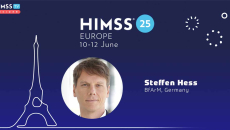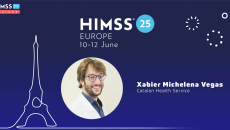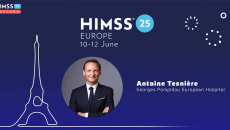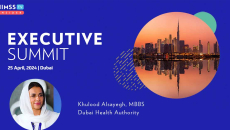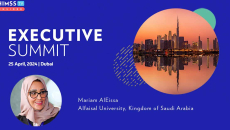EMEA
Synthetic data supports privacy and early research access – but must meet standards for fidelity, usability and security to earn trust, says Steffen Hess, Health Data Lab head at Germany's Federal Institute for Drugs and Medical Devices (BfArM).
HIMSS25 Europe
Smaller countries face unique challenges in innovation procurement. Recent European initiatives and programmes look to improve access to procurement tools and foster knowledge sharing across borders.
Caroline Zago, healthcare informatics leader for Latin America at Philips, says the company leverages AI and machine learning to streamline workflows, make data easier for patients to understand and elevate care quality.
SPONSORED
Teresa Sacchetta, healthcare director at InterSystems Brazil, says the company's tools support health systems with government regulations compliance, including ensuring that patients consent to sharing their data.
JeanCarlo Luz, electronic medical records leader at Philips, discusses how the company's EMR leverages cloud services and interoperability with multiple partners to help to deliver time and cost savings for hospitals.
Catalonia has successfully deployed an AI-driven risk stratification system since 2015, but for broader AI adoption, implementation hesitancy needs to be removed and data capture improve, says Catalan Health Service's Xabier Michelena Vegas.
SPONSORED
Sara Luisa Mintrone, chief marketing officer for the Dedalus Group, believes that, since the pandemic, patients want to participate in their own care rather than passively waiting for treatment decisions to be made for them.
Ethical and equitable use of open data is a critical challenge for AI development in healthcare, requiring global collaboration to balance innovation with privacy and security, says Antoine Tesnière, professor at George Pompidou European Hospital.
Dr. Khulood Alsayegh, Dubai Health Authority's head of clinical standards and guidelines and the only healthcare AI ethics lead assessor in the Middle East and Africa, teaches courses to help build a regional community of assessors.
Mariam AlEissa, adjunct assistant professor at Alfaisal University in Saudi Arabia, explains how genomics data can identify causes of, and help develop treatments for, non-communicable diseases.
